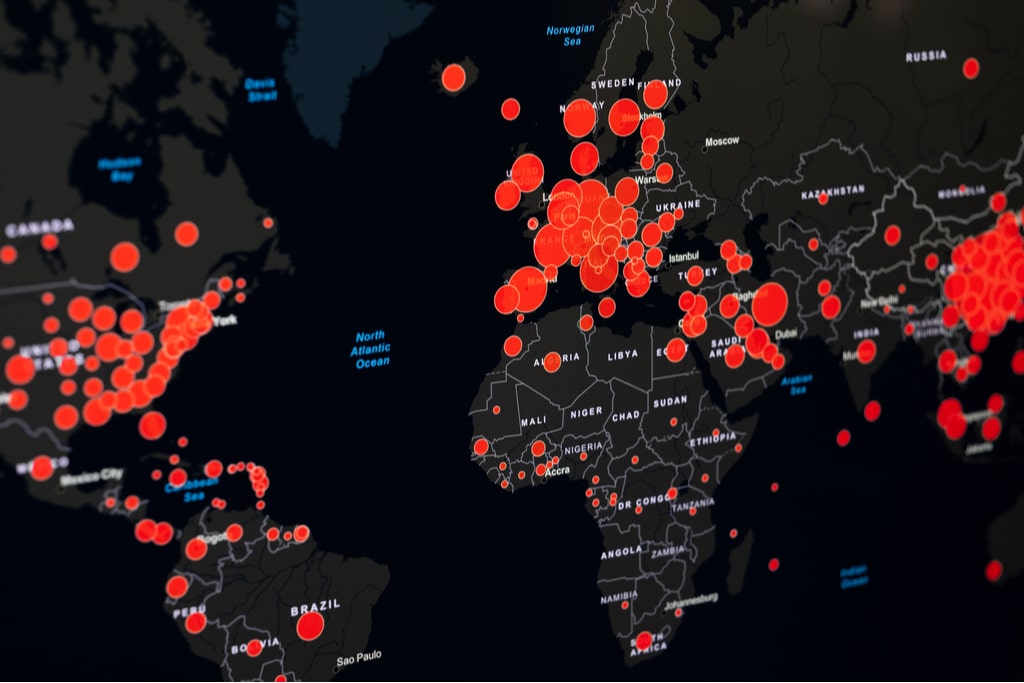
How pandemic is affecting fundamental rights of people across nations – An Analysis
Rule of law’s critical pillar of fundamental rights is evidently deeply impacted by the coronavirus pandemic across the globe. World Justice Project Rule of Law Index for year 2020 clearly shows that many countries have declined remarkably in maintaining fundamental rights score than any other rule of law factor over last five years.
Lockdowns and quarantines during pandemic have dramatically impacted freedom of travel and freedom for people, but have also impacted fundamental rights in certain key arenas.
Crisis has triggered some state responses that are discriminatory against certain groups:
The founding principle of rule of law that states ‘all people would be treated equally regardless of color, race, sex, religion, language, origin, political or other opinion, status’ has been affected during pandemic. The Covid-19 pandemic has led states to disproportionately discriminate against certain groups. The already lying fissures in societies have been widened during pandemic.
The World Justice Project (WJP) has noted that certain nations have deliberately discriminated and neglected certain communities while responding to pandemic. This further put these groups at risk. Indigenous communities have been particularly hit by these discriminations. The dramatic impact is seen in native communities of Ecuador, Brazil and other Amazonian nations.
Migrants, asylum seekers and refugees are other groups to have been hot hard by state policies. Enhanced policing and movement restrictions directed at refugees of Syrian origin by Greece and Lebanon is one such example.
RELATED NEWS: Netherlands becomes latest country to suspend AstraZeneca vaccine use over side effects concern
Racial discrimination in the name of stigmatizing certain people has caused havoc on certain populations. For example, Asian people have been targeted for having spread the coronavirus and faced violence and harassment at the hands of public. This has been further fueled by leaders of nations like United States that have roped in the anti-Asian discrimination.
Suppresses freedom to dissent and expression:
Though emergency situations like a pandemic warrant stricter measures to safeguard public health, but even then right to expression must be safeguarded to allow flow of information. Certain nations have taken pandemic as an opportunity to tighten rules over freedom of expression of public and dissent in certain cases. Imposing of stricter laws and sanctioning expression of information about pandemic labeling them as ‘fake’ has been as way states have exploited the pandemic. Prime examples are how censorship has scorched Asia and Middle East.
Right to Privacy:
Rise in surveillance measures and contact tracing as a way to control spread of coronavirus pandemic has raised questions around protection of privacy rights of people. The UN Office of the High Commissioner for Human Rights recommends states must refrain from using the derogation mechanism when possible, stating that “although derogation or suspension of certain rights is permitted when such emergencies are declared, measures suspending rights should be avoided when the situation can be adequately dealt with by establishing proportionate restrictions or limitations on certain rights”.
Coronavirus pandemic has laid wide open crevices and fissures in our society and global laws framework that have in all probabilities been there but in a hidden context. Lapse in fundamental rights provision to people has led to further complexities as a by-product of the pandemic. Bringing solution for these agendas must be in top priority to keep order and equality among societies.




